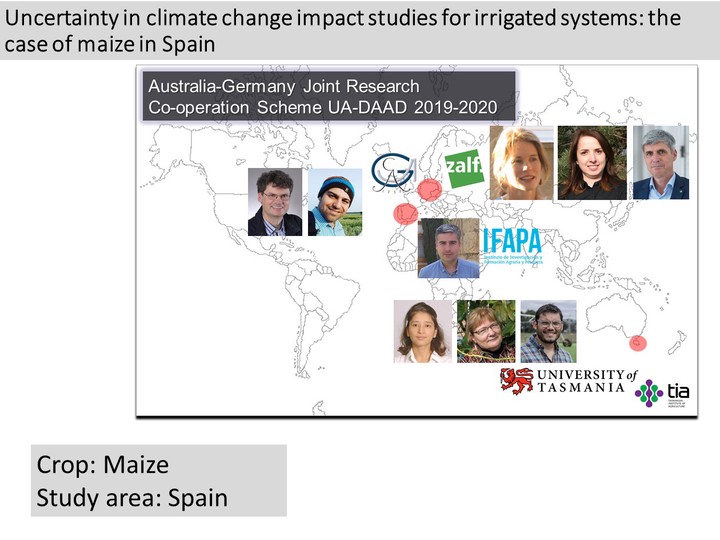High water productivity in agriculture

Full title
Towards high water productivity in agriculture based on multi-scale modelling
Summary
Given the importance of crop yield variability for the stability of food supplies and security, identifying drivers of yield variability is important to identify options to enhancing system resilience and potential adaptations. Generally, a combination of climatic, soil and socioeconomic factors such as crop type, technology development, input and crop prices, policy framework and supply of irrigation water constitute the main drivers of irrigated crop yields. Previous climate impact studies have focused largely on the response of average crop yields only climate variables.
With this context, the first objective of the project is to assess the interactions between data aggregation methods and model complexity (particularly soil, water demand and irrigation modules) for irrigated conditions in two case studies (potato in Tasmania, Australia and maize in Andalusia, Spain). The second objective of this project is to quantify the regional drivers (climatic, water supply, socio-economic, etc.) of crop yield variability of irrigated agriculture across regions in diverse Australian agricultural systems, as well as a case study in southern Spain.
Related publication
Partners
- University of Göttingen
- TIA-UTAS
- Leibniz center for agricultural landscape research (ZALF)
Funded by
German Academic Exchange Sevice (DAAD)